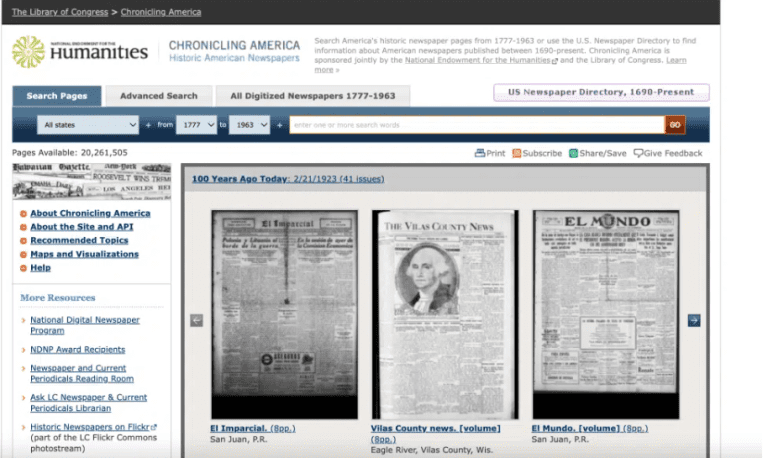The Role of Authentication in Email Marketing
Have you ever wondered why some of your email campaigns land in inboxes while others vanish into spam folders? Or how to protect your brand from being used in phishing scams? If these are concerns you’re facing, you’re not alone.
In the world of email marketing, ensuring your emails are trusted and delivered to the right audience is a common challenge. The solution? Email authentication. By implementing protocols like SPF, DKIM, and DMARC, you can boost deliverability and safeguard your brand’s reputation.
So, how can you ensure your emails are authenticated and trusted? Let’s explore the role of email authentication and why it matters for your marketing efforts.
What Is Email Authentication?
Email authentication is a set of protocols used to verify that emails truly come from the domain they claim to be from. This ensures that the emails come from the legitimate domain owner and cannot be altered during transmission. These authentication protocols help deflect threats, such as email spoofing and phishing, which could adversely affect your brand’s reputation.
Why Is Email Authentication Important?
This is to secure your email reputation and guarantee that as many of the emails you send from Campaign are delivered to inboxes. Without authentication, your emails may be blocked by providers (flagged as spam) or deemed suspicious.
This can damage your sender reputation, lower customer engagement, and even result in legal penalties. Here’s why email authentication is a critical part of your email marketing strategy:
- Increased Deliverability: Properly authenticated emails are less likely to be filtered out as spam, ensuring they reach the inboxes of your subscribers.
- Protecting Brand Reputation: Authentication helps protect your domain from being spoofed by attackers, preserving your brand’s credibility.
- Improved Customer Trust: Customers are more likely to engage with your emails if they trust that they are from a legitimate source.
- Compliance with Regulations: Email authentication helps businesses comply with email regulations like GDPR and CAN-SPAM, reducing the risk of penalties.
Key Authentication Protocols in Email Marketing
There are several key protocols used in email authentication, each serving a unique purpose in verifying email legitimacy. To ensure your emails consistently reach inboxes and avoid being marked as spam, setting up SPF, DKIM, and DMARC for better email deliverability is essential. These protocols not only authenticate the sender’s identity but also enhance the overall reliability and trustworthiness of your email campaigns.
1. SPF (Sender Policy Framework)
What Is SPF?
SPF (Sender Policy Framework) is an email validation system designed to prevent spam by identifying who can send emails on behalf of your domain. This works by the owner of the domain listing which IP addresses are allowed to send emails with that email address.
How Does SPF Work?
When someone sends an email, the recipient’s mail server verifies that message by referring to the sending domain SPF record When the IP of the sender is found to be listed as a legitimate source, then it delivers this email. Otherwise, the email will be likely flagged as spam or rejected.
2. DKIM (DomainKeys Identified Mail)
What Is DKIM?
DKIM (DomainKeys Identified Mail) is an email authentication technique that adds a digital signature to your emails. This signature verifies that the email has not been altered during transit and that it is indeed from the claimed sender.
How Does DKIM Work?
When an email is sent, DKIM attaches a cryptographic signature linked to the sender’s domain. The recipient’s server checks the signature by querying the sender’s DNS records. If the signature matches, the email is considered authentic and is delivered.
- s are genuine and unmodified, which enhances their willingness to engage.
3. DMARC (Domain-Based Message Authentication, Reporting & Conformance)
What Is DMARC?
DMARC (Domain-Based Message Authentication, Reporting & Conformance) builds on SPF and DKIM to provide domain owners with better control over their emails. It allows domain owners to specify how email providers should handle unauthenticated messages, while also providing detailed reports on authentication.
How Does DMARC Work?
DMARC policies instruct the receiving server on what to do if an email fails SPF or DKIM authentication. Domain owners can set policies to allow, quarantine, or reject emails that fail authentication checks.
Implementing Authentication in Your Email Marketing Strategy
Now that you understand the importance of email authentication, how can you implement it into your email marketing strategy? Follow these steps to get started:
How Authentication Improves Email Marketing Performance
Email authentication doesn’t just protect your business from fraud—it also directly impacts the success of your email marketing campaigns.
1. Boosting Deliverability and Open Rates
Email service providers (ESPs) prioritize emails from authenticated domains. With SPF, DKIM, and DMARC in place, your emails are more likely to reach the inbox rather than the spam folder. As a result, you’ll experience higher open rates and improved engagement with your subscribers.
2. Enhancing Brand Trust and Credibility
FraudsoFoe – Phishing attacks and spoofing erode a brand’s reputation, leading to a loss of customer trust. Email Authentication validates that only those emails purporting to be sent by your domain are actually from you and help safeguard the brand image while aiding reliability with recipients.
3. Protecting Against Cyber Threats
Phishing emails are a common tactic that cybercriminals use to spread malware or steal information. Email authentication protocols such as DMARC ensure the protection of your subscribers by removing fake emails. It not only protects your customers but decreases the likelihood of legal liabilities for yourself and your business.
4. Supporting Compliance with Regulations
Email regulations, such as GDPR and CAN-SPAM, require businesses to take steps to prevent fraudulent email activities. Authentication protocols like DMARC help you comply with these regulations by verifying sender identities and ensuring emails are delivered securely.
Final Thoughts
So, are you ready to stop worrying about your emails ending up in spam? By ensuring your email campaigns are properly authenticated, you can avoid the common pitfalls of poor deliverability and brand vulnerability.
After all, isn’t protecting your brand and ensuring campaign success worth the extra step?
Frequent Queries
- Why does email authentication matter?
This will prevent you from ruining your brand, getting flagged as spam, and possibly being jailed.
- What are the key email authentication protocols?
The three most common protocols used to authenticate emails are SPF, DKIM, and DMARC.
- How do SPF and DKIM differ?
SPF authenticates only the originator’s IP address while DKIM ensures that no one has altered an email.
- How can I implement email authentication?
SPF, DKIM, and DMARC Records for your domain that you must set up with the help of your Email provider or IT team.






